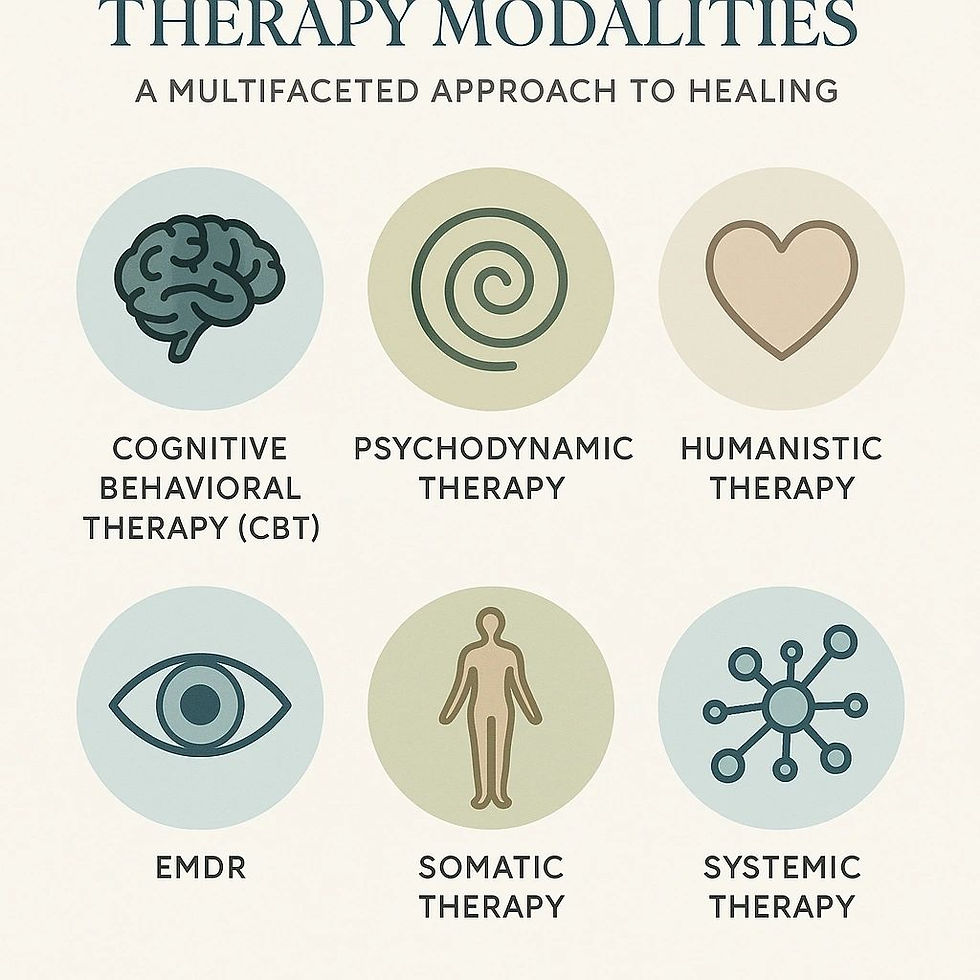Lack of Access to Mental Health Resources: A Growing Crisis
- Allison McCue-Napoli
- Apr 3
- 3 min read

Mental health is just as important as physical health. Yet, millions of people worldwide struggle to access the care they need. Despite growing awareness and advocacy, barriers to mental health resources continue to leave individuals without essential support. The consequences of this lack of access are severe, affecting individuals and society.
The Barriers to Access
Financial Constraints
One of the biggest obstacles to mental health care is cost. Therapy sessions, psychiatric evaluations, and medication can be prohibitively expensive, especially for those without insurance. High deductibles and co-pays can make regular treatment unaffordable, even for those with coverage.
Shortage of Providers
In many areas, especially rural communities, there is a severe shortage of mental health professionals. This leads to long wait times, sometimes stretching into months before an individual can receive care. In emergency situations, this delay can be life-threatening.
Social Stigma
Despite increasing awareness, stigma around mental health still discourages many from seeking help. Cultural beliefs, fear of judgment, or concerns about seeking help might affect one’s career or social standing and can prevent individuals from reaching out.
Limited Community Resources
Public mental health services are often underfunded and overstretched. Many free or low-cost programs have long waiting lists, while some communities lack them. Nonprofit organizations and crisis centers attempt to fill the gap but frequently operate with limited funding and resources.
Lack of Education and Awareness
Many people don’t recognize the signs of mental health struggles or don’t know where to seek help. Misinformation about mental illness can also prevent individuals from understanding that they need treatment.
The Consequences of Inadequate Access
Increased Rates of Mental Health Crises
Without access to early intervention and consistent care, individuals may experience worsening symptoms, leading to crises that require emergency intervention. Suicide rates, self-harm, and severe mental health episodes are exacerbated by the lack of available care.
Strain on Other Social Services
When mental health needs go unmet, people often turn to emergency rooms, law enforcement, or social services for help. This places additional burdens on systems not designed to handle long-term mental health care, leading to ineffective and costly responses.
Impact on Families and Workplaces
Mental health issues don’t just affect individuals; they also impact families, workplaces, and communities. Unaddressed mental health conditions can lead to job loss, relationship breakdowns, and decreased productivity, contributing to economic and social instability.
Solutions and Steps Forward
Expanding Affordable and Accessible Care
Governments and policymakers must prioritize mental health funding, ensuring affordable and widely available services. Insurance companies should cover mental health care as comprehensively as physical health care.
Increasing Mental Health Workforce
Investing in training programs and incentives for mental health professionals can help address provider shortages, especially in underserved areas. Teletherapy and digital mental health services can also help bridge the gap.
Combating Stigma Through Education
Public awareness campaigns, school programs, and workplace mental health initiatives can help normalize conversations around mental health and encourage more people to seek help without fear of judgment.
Strengthening Community Support Systems
Communities should invest in local mental health programs, crisis intervention services, and peer support networks. Employers and schools can also implement policies that support mental well-being.
The lack of access to mental health resources is a crisis that requires urgent attention. By addressing financial, structural, and societal barriers, we can create a future where mental health care is as accessible and prioritized as physical health care. Everyone deserves the opportunity to receive the support they need to lead fulfilling and healthy lives.








Comments